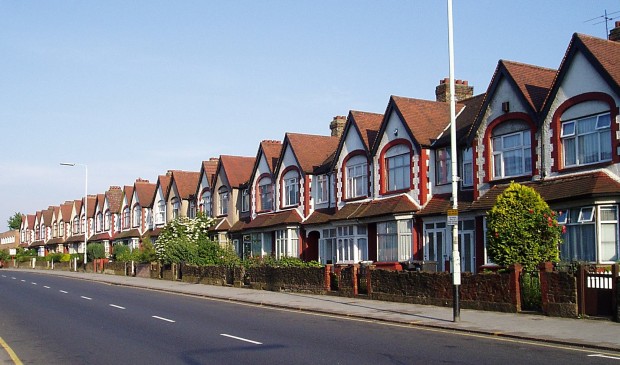RECA calls for more housing; Austin reacts
Tuesday, January 20, 2015 by
Elizabeth Pagano Last week, the Real Estate Council of Austin released a paper calling for a fix to Austin’s affordable housing problem. As a solution, the group called for 100,000 new housing units in the city by 2025.
The paper, which is filled with statistics about Austin’s decreasing affordability, increasing population and what lies ahead, states in part:
“For some, the answer lies in enacting new measures that would freeze today’s housing in place to slow appreciation. The Real Estate Council of Austin argues that these measures are counterproductive, serving only to preserve the root cause of the problem: too little housing.
“Austin needs more housing throughout the city, but it cannot afford to continue the low-density suburban style development pattern city policies have encouraged for more than 70 years.”
RECA president Ward Tisdale told the Monitor that it was a “fairly simple proposition.”
“If we want to have an impact on affordability, we need to have more supply and we need to have a code that is more flexible that enables different types of innovative housing,” said Tisdale. “Because, ultimately, those solutions will help mitigate the affordability issue that is pretty much citywide.”
Mayor Pro Tem Kathie Tovo told the Monitor that while she agreed the cost of housing was something the city needs to focus on, in her opinion, “the affordability question is complex, and will not necessarily be solved by adding 100,000 units.”
Tovo continued: “I’m certainly in agreement that it is a critical issue. I believe that we need to have a more informed, broader-based discussion.”
University of Texas at Austin professor Elizabeth Mueller has been studying the city’s affordable housing stock. She told the Monitor that she thought the RECA paper made some important points.
“I think they hit hard on the city losing out to the region because of housing costs, and the need for us to add more housing to keep up. That’s generally true. And it’s definitely true that lower-income people are most hurt by having to move further out in the region, because of the cost of housing and commuting,” said Mueller, who also concurred with the idea that more diverse housing types should be developed.
However, Mueller warned, simply building our way out of an affordability crisis probably won’t work.
“They talk about filtering, and they make the argument that we just need to build a lot, and if we build a lot more and add stuff at the top, the other stuff will kind of filter down to people at the bottom,” said Mueller. “But up-filtering is when the stuff at the bottom is getting snatched up, and redeveloped or — as is happening more often here — just painted and re-rented for a lot more money. Those units never filter down to the people at the bottom when that’s happening.
“We can’t just add housing to the top of the market and think that is going to do it,” Mueller continued. “That will do something, but if we are losing housing at the bottom end at such a fast pace, like we are now, it’s not going to work.”
Preservation of existing affordable housing stock is also important, she said. According to RECA, “Austin lost 7,000 rental units considered affordable to households earning less than $25,000 a year just from 2012 to 2014 due to redevelopment and price increases.”
To that end, Mueller said there is a range of things that could be done to help preserve affordability, including working to help owners upgrade their properties, helping nonprofits buy affordable housing and helping low-income cooperatives form.
Tovo said that the city has been exploring best practices for preserving existing multifamily housing and was “very eager to help move that process forward as policy actions.”
In addition, Tovo said, the city needs to re-evaluate commercial short-term rental regulations as well as the impact of allowing up to 3 percent of the city’s housing stock to be used that way. She worries that commercial short-term rentals have helped drive up the cost of long-term rentals.
Tovo also said that, contrary to implications in RECA’s paper, it is much too early to tell whether programs like the city’s downtown density bonus program have been successful. In addition to that program, Tovo said she is looking forward to talking with the new City Council about requiring more on-site affordable housing.
“I’m excited to see RECA focusing so closely on affordable housing and affordability,” said Tovo. “I believe that we have a lot of work to do in that area. I hope that we can talk about the value of requiring on-site units, versus a fee-in-lieu. Because that is a way to really achieve some of what they are talking about, and making sure we are creating housing in all parts of town that is affordable.
“There are certainly some points in (the paper) that I agree with,” Tovo continued. Specifically, she also believes the city is currently in an affordable housing crisis, and that it needs more affordably priced housing as well as more housing throughout the city, particularly where jobs are located.
photo by A R Driver (Olympus µ [mju:] 300 Digital Camera) [CC BY-SA 2.0 uk], via Wikimedia Commons
You're a community leader
And we’re honored you look to us for serious, in-depth news. You know a strong community needs local and dedicated watchdog reporting. We’re here for you and that won’t change. Now will you take the powerful next step and support our nonprofit news organization?



